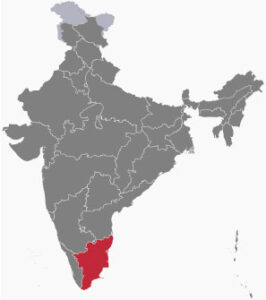 Given the vast magnitudes of investment required in the energy transition, and given the limitations of Indian public finance, the main path to energy transition investment lies in private investment. Only the domestic and the foreign private sector have the scale of resourcing required to terminate contracts with coal-fired plants and build a new world of renewables and storage. This process faces limitations which are collectively bucketed as ‘investability’. One of the most important states in India from the perspective of energy transition is Tamil Nadu. It was one of the first states in India to have achieved almost universal electrification and was also at the forefront of the transition to renewables — both wind and solar — in the country.
Given the vast magnitudes of investment required in the energy transition, and given the limitations of Indian public finance, the main path to energy transition investment lies in private investment. Only the domestic and the foreign private sector have the scale of resourcing required to terminate contracts with coal-fired plants and build a new world of renewables and storage. This process faces limitations which are collectively bucketed as ‘investability’. One of the most important states in India from the perspective of energy transition is Tamil Nadu. It was one of the first states in India to have achieved almost universal electrification and was also at the forefront of the transition to renewables — both wind and solar — in the country.
The XKDR Forum and TrustBridge Rule of Law Foundation jointly organised a conference on ‘Investments for a Sustainable Tamil Nadu: Reforms and Strategies for the Power Sector’ in Chennai on October 13. The aim of the conference was to present a review of the electricity sector in Tamil Nadu and bring together academics, researchers, policy-makers and industry to engage in a constructive dialogue on a reforms agenda. A collection of facts about the sector was presented that can form the basis of a deep dive into the causes and consequences of existing decisions, and also policy proposals to improve investability for transition finance.

Shakti Sustainable Energy Foundation participated in the Conference. “A successful electricity reform is expected to enhance the efficiency of the sector; improve energy service reliability and service quality; reduce price-cost gap through cost-reflective pricing; and increase investments. As a result of climate change and energy security concerns, a renewed interest can be seen in power sector reforms, efficiency, growth, and welfare. State Electricity Regulators, who have a crucial role in ensuring efficient and reliable operation of the electricity grid while protecting the interest of stakeholders, are an important part of these reforms. Regulators need to follow the template but must have the freedom to adapt it as per the socio-technical reality. Since new technologies and ideas are being added at a fast pace and it is the regulator who finally implements all ongoing and new initiatives, knowledge competency support is crucial for them to work efficiently,” said Hansika Dhankhar, Programme Manager, Clean Power, Shakti.
